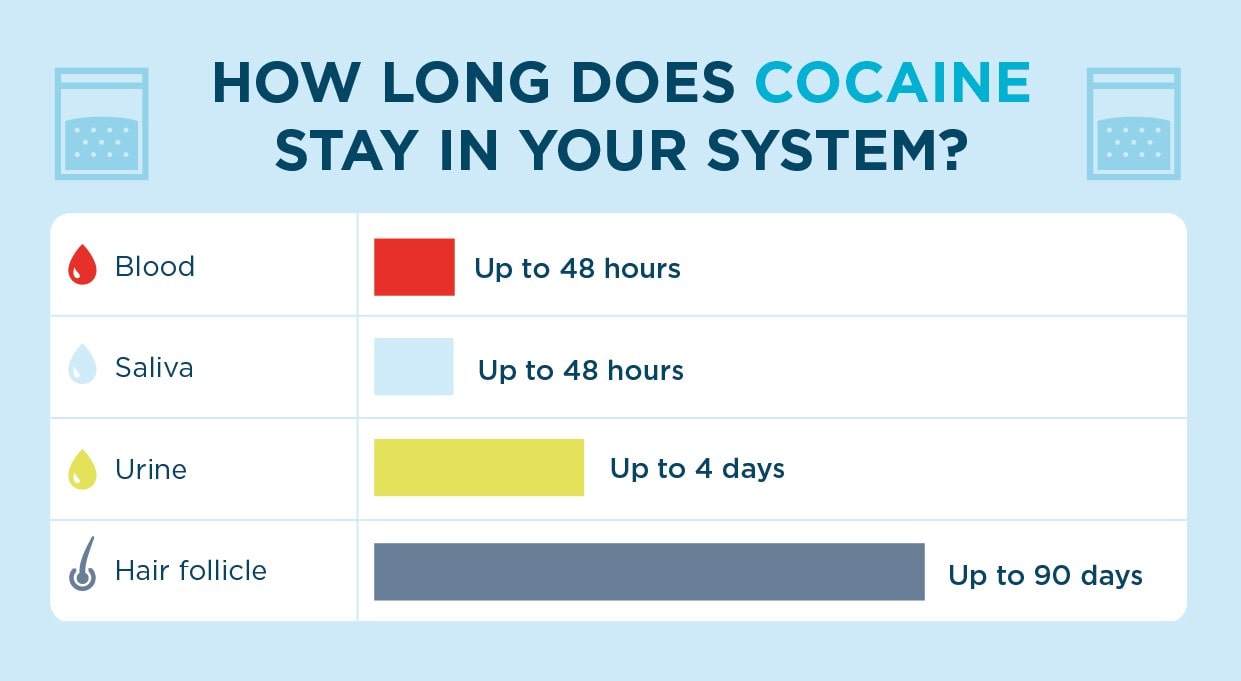How long does cocaine stay in your system?
If you've taken cocaine, this is how long it might stay in your blood, urine, saliva and more.
If you've taken cocaine, this is how long it might stay in your blood, urine, saliva and more.


Taking cocaine causes an intense but brief high and people who take a lot of cocaine tend to do so in order to continue feeling the short-lived effects.
As you take more cocaine, tolerance grows, meaning that you need to take more and more cocaine to feel the high.
In this blog, we explore how long cocaine stays in your system. We'll also provide information on the symptoms of cocaine addiction and the cocaine addiction rehab we can provide at Priory.
After your last use, cocaine can remain detectable in your system for weeks. It will remain detectable to tests in your blood and salvia for up to 2 days (48 hours), urine for up to 4 days (96 hours), and hair follicles for up to 90 days.
These figures may vary depending on how much you've consumed and how regular your use of the drug is.
When you take cocaine, your body quickly begins to break it down into substances called metabolites. Metabolites remain in your system for a while, and can be detected by tests that are used to find cocaine in your system.

There are many methods of detecting cocaine in your system. The most commonly used test is a urine sample because it's non-invasive, meaning nothing has to go into your skin.
Depending on the reason for your test and who is performing the test, blood samples or swabs might be used.
Cocaine can be detected in your blood up to 2 days after taking it.
Cocaine can be detected in your saliva up to 2 days after taking it.
Cocaine can be detected in your urine up to 4 days after taking it.
Cocaine can be detected on samples of your hair up to 90 days after taking it.
Detection time, also referred to as a detection window, is the timeframe within cocaine can be found in your body via a test.
While the above gives some indication as to how long it’s possible for cocaine to stay in your system, this can vary depending on a number of different factors, including:
Typically, a cocaine high will only last 20 to 30 minutes, which encourages people to take more cocaine, but the side effects can last for a little while longer.
Short-term effects of cocaine use can include:
Long-term effects of cocaine use can include:
After taking cocaine, you may also experience what's known as a cocaine comedown/crash the next day. Depending on how much cocaine is in your body, the symptoms of a comedown can vary, but the most common symptom is excessive fatigue. You may also experience psychological symptoms, such as depression and anxiety, and physical symptoms, like a stomach ache.
